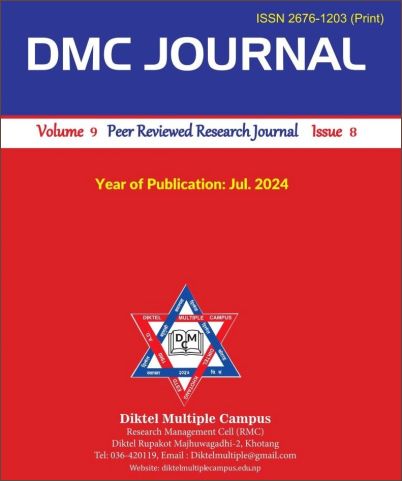Understanding the Gen Z: Facilitating the Learners in the Literature Classroom
DOI:
https://doi.org/10.3126/dmcj.v9i8.74880Keywords:
engagement, motivation, curricula, collaboration, ZPDAbstract
This paper delves into the examination and comprehension of Z learners in the context of Nepalese higher educational institutions and focuses on motivating and facilitating their learning experiences. The objective of it is to provide an overview of learning literature as a part of supporting and empowering learners professionally in their educational pursuits. It draws upon information from both primary and secondary sources to explore the application of the activity theory model in higher education, serving as a theoretical framework to understand the collaborative learning approach of Gen Z. The study is unique in its setting, specifically targeting students at the Master's level. Its findings are based on a limited sample size of twenty-five students from three different locations in the Kathmandu Valley and Koshi Province. Consequently, the generalization of the results is inherently constrained to the context of Tribhuvan University. The study informs and prepares the Nepalese academic community about the characteristics of Gen Z, making academic leaders aware of the landscape of higher education in Nepal. At the core of this investigation, the pivotal question is concerning true classroom learning enhances the students. If the answer is affirmative, the paper further explores the effective utilization of curricula to engage learners in their educational journey.




